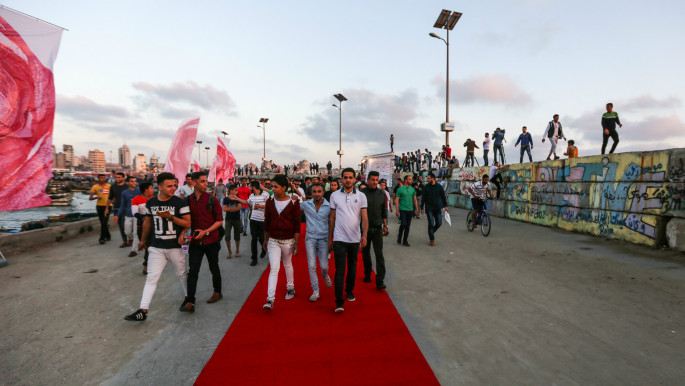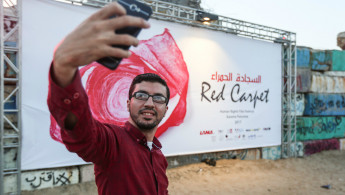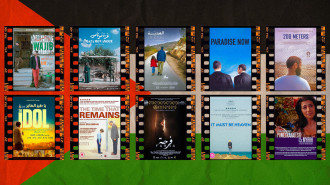Red carpet for Gaza film festival minus the stars
The Red Carpet Festival showcases films focusing on human rights issues and aims to provide Palestinians, many of them unemployed, with a rare opportunity to explore their dreams, or at least practice a little escapism.
True to its name, the festival's organisers have laid out a 100-metre (yard) long red carpet. But there are no celebrities, it's for the thousands of ordinary Gazans turning out to watch the films.
"The children and poor people are walking on the carpet," organiser Saad al-Saworki told AFP proudly at Friday's opening night.
"They are far more important than the carpet."
The festival, which is in its third year, coincides with the Cannes Film Festival and aims to show that there is an alternative to the catwalks and glamour of its French counterpart, Saworki said.
The maiden event was organised by Palestinian director Khalil al-Muzain in 2015 in the rubble of homes destroyed by the Israeli army in the most recent of the three wars that have devastated Gaza since 2008.
 |
| True to its name, the festival's organisers have laid out a 100-metre (yard) long red carpet [Anadolu] |
This year for the first time, all of the festival's entries are being screened simultaneously in Ramallah in the West Bank and in the Israeli city of Haifa.
Around 40 films by Palestinian and foreign directors are being screened over five days.
The opening film was Palestinian director Raed Andoni's "Ghost Hunting", winner of best documentary at the Berlin International Film Festival earlier this year.
It focuses on Israeli prison interrogation techniques and its screening came with hundreds of Palestinians in Israeli jails on hunger strike for nearly a month in protest over their conditions.
This year also marks the 100th anniversary of the Balfour Declaration, the letter in which the British government committed itself to the establishment of a Jewish national home in Palestine.
 |
People walked on the carpet and trampled on (British foreign minister Arthur) Balfour's promise - Saad Abu Ramadan, Festival spokesman |
 |
Festival spokesman Saad Abu Ramadan said that the red carpet was 100 metres long to commemorate the anniversary and that parts of the text had been inscribed on it.
Palestinians despise the document, saying it gave away their independence, while Israelis hail it as an early recognition of the need for a Jewish state.
"People walked on the carpet and trampled on (British foreign minister Arthur) Balfour's promise," Abu Ramadan said.
Tamara Matar, a 21-year-old law student, said the festival gave her a chance to "feel free" in the tiny enclave which has been under Israeli blockade for a decade.
"There is no cinema in Gaza," she said. "I watch films at the festival because of the blockade and the closed borders, the unemployment and the electricity crisis we have to endure."
'Love of Life'
Youth activist Asad al-Saftawi, 25, said the festival helped change Gaza's image in the outside world.
Instead of the "stereotype" of violence and destruction, it showed that "in Gaza young people have creativity and love of life."
"Our message to the Palestinian leadership in Gaza and the West Bank - we want freedom, we want a cinema in Gaza," Saftawi said.
Rif Kassem, a Syrian refugee who has been living in Gaza for four years, attended a screening with his wife.
"We, as Syrian refugees, share the pain of the Palestinian refugees,” he said.
Mohammed, 27, walked down the red carpet with his sick father in a wheelchair.
"I want to feel like I am at Cannes," he said.



